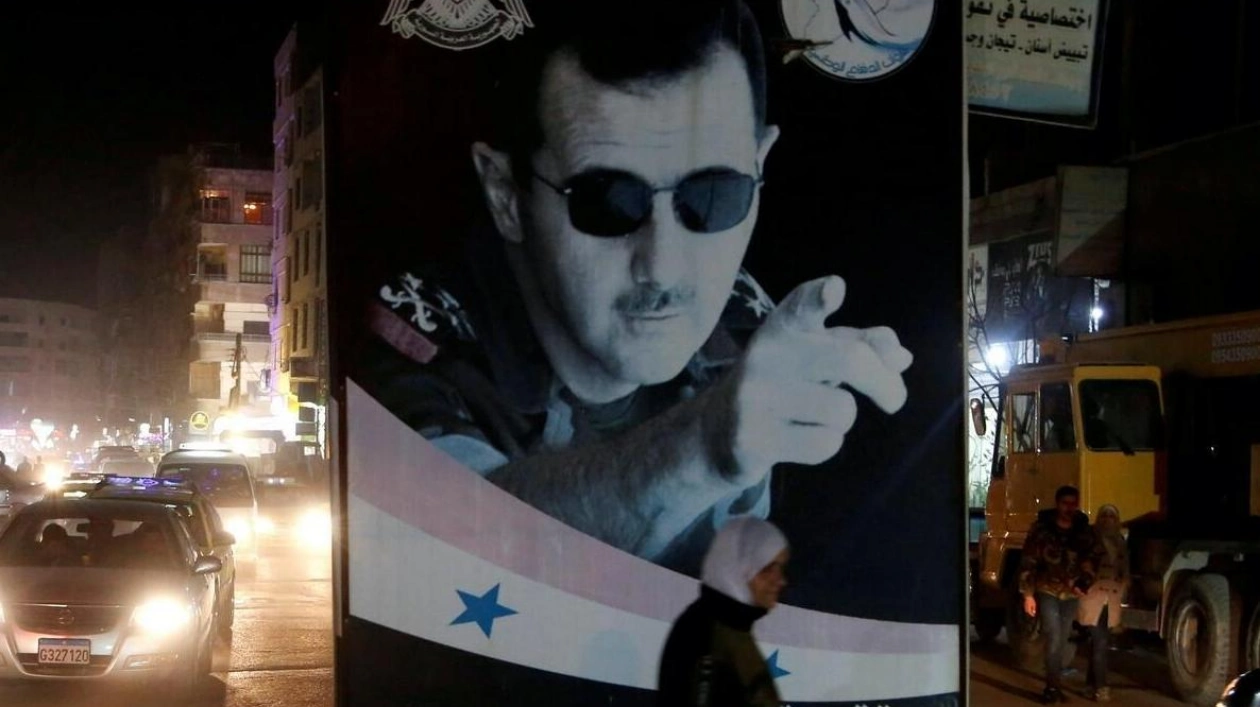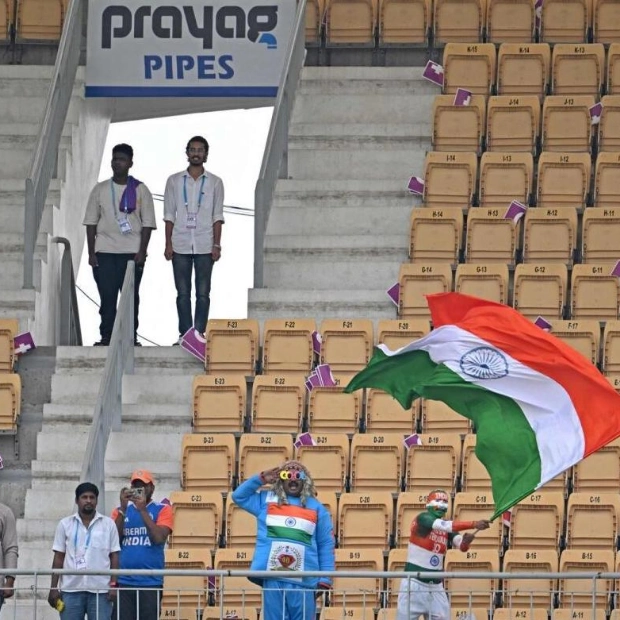Syrian President Bashar al-Assad departed Damascus on Sunday for an undisclosed location, according to two senior army officers who spoke to Reuters. Simultaneously, rebel forces claimed they had entered the capital without encountering significant resistance from government troops. Thousands of people gathered in a central square, waving flags and chanting 'Freedom,' as witnesses described the scene.
'We celebrate with the Syrian people the news of freeing our prisoners and releasing their chains and announcing the end of the era of injustice in Sednaya prison,' declared the rebels. Sednaya, a major military prison near Damascus, has long been a site of government detention.
Earlier, rebels had seized full control of the crucial city of Homs after a single day of intense fighting, significantly weakening Assad's 24-year rule. Gunfire echoed through the heart of Damascus, though its origin remained unclear. The fall of Homs grants insurgents control over Syria's strategic heartland and a vital highway junction, cutting Damascus off from the coastal region that serves as the Alawite sect's stronghold and where Russia maintains a naval and air base.
The capture of Homs symbolizes a significant resurgence for the rebel movement in the 13-year conflict. Once ravaged by siege warfare, Homs now stands as a testament to the rebels' resilience. Hayat Tahrir al-Sham commander Abu Mohammed al-Golani hailed the event as historic and urged fighters to spare those who surrender.
Rebels also liberated thousands of detainees from Homs' prison, with security forces fleeing hastily and burning documents. Protests against Assad erupted in various Damascus districts, with security forces either unable or unwilling to intervene. Rebel commander Hassan Abdul Ghani announced ongoing operations to 'completely liberate' the countryside around Damascus, with forces now eyeing the capital itself.
In a symbolic act, a statue of Assad's father, the late President Hafez al-Assad, was toppled and destroyed in one suburb. The Syrian army reported reinforcing positions around Damascus, while state television maintained that Assad remained in the city. Outside Damascus, rebels swiftly took control of the entire southwest region.
International powers, including Qatar, Saudi Arabia, Jordan, Egypt, Iraq, Iran, Turkey, and Russia, issued a joint statement expressing concern over the crisis and calling for a political solution. However, no concrete steps were indicated, as the situation in Syria continued to evolve rapidly.
Syria's civil war, ignited in 2011 as a revolt against Assad's rule, has drawn in major external forces, facilitated global jihadist activities, and displaced millions of refugees. Hayat Tahrir al-Sham, the most powerful rebel group and a former al Qaeda affiliate, is viewed by the U.S. and others as a terrorist organization, raising fears among Syrians of potential harsh Islamist rule.
Source link: https://www.khaleejtimes.com






